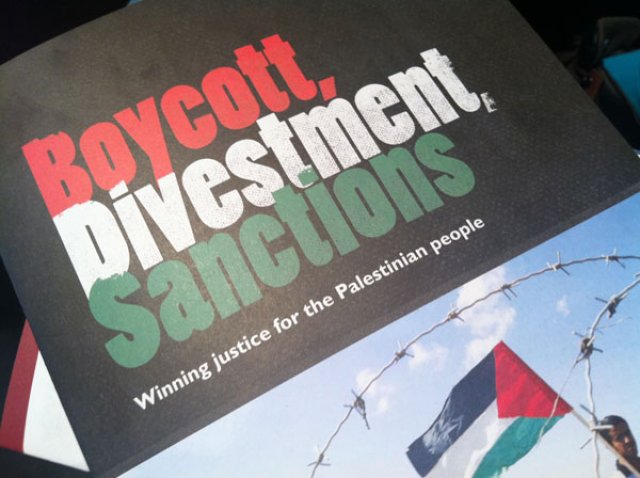
The third Australia-wide gathering of boycott, divestment and sanctions (BDS) campaigners took place in Adelaide from September 21 to 23. The Australian Friends of Palestine Association (AFOPA) hosted the weekend of events.
A highlight of the three days was the appearance by London-based Israeli academic Ilan Pappe, who spoke twice. He spoke to 600 people at the annual Edward Said Memorial lecture, which is named for the late Palestinian academic.
Earlier, Pappe spoke at a BDS campaign workshop about the personal journey of Israeli Jews who came to support the BDS movement. He said the BDS campaign had helped create a dynamic that meant progressive Israeli Jews came to see themselves as supporters of Palestinian liberation.
Another conference highlight was a video presentation by BDS founder Omar Barghouti.
Activist workshops discussed the four national BDS campaigns: Bin Veolia (referring to the French multinational that provides discriminatory transport services to illegal settlements in the occupied West Bank); boycotting Dead Sea minerals (this includes Israeli companies such as Seacret, which steal Palestinian resources); academic boycotts; and truth in labelling.
On September 21, conference attendees also joined the 103rd weekly BDS vigil outside the Seacret store in the Myer Centre in the Rundle Street Mall. The conference noted the impressive achievement of maintaining weekly vigils for almost two years.
The conference also included a concert featuring musician Phil Monsour and a solidarity dinner.
More than 25 groups took part in the conference, including all the main Palestine solidarity groups in Australia. Groups represented included: Australians for Palestine, Coalition for Justice and Peace in Palestine (Sydney), Students for Palestine, Brisbane-based Justice for Palestine, Friends of Palestine WA and AFOPA.
National communication and coordination of the BDS movement has been an ongoing discussion since the first BDS conference in October 2010. This was the first conference since a new self-styled umbrella group called Australia Palestine Advocacy Network (APAN) was formed. APAN held its annual general meeting and ran a planning session at the conference.
Some Palestine solidarity groups have joined APAN and others have decided to stay out of the new network. Other groups are still considering the matter.
APAN is controversial because it did not grow out of the existing Palestine solidarity organisations, but was foisted on the movement from above. It is widely regarded as being close to the Palestinian Authority. This is an issue because the Palestinian Authority has no mandate to govern in Palestine. Its current leaders usurped power in the West Bank and have refused to hold (now long overdue) elections since then.
Further, the Palestinian Authority can, at best, claim to speak only for Palestinians inside the occupied territories and not those in refugee camps, or the “forgotten Palestinians” inside Israel’s 1967 borders.
APAN also refuses to explicitly support the BDS campaign, even though it is the one campaign that has been endorsed and supported by the large majority of Palestinian civil society groups.